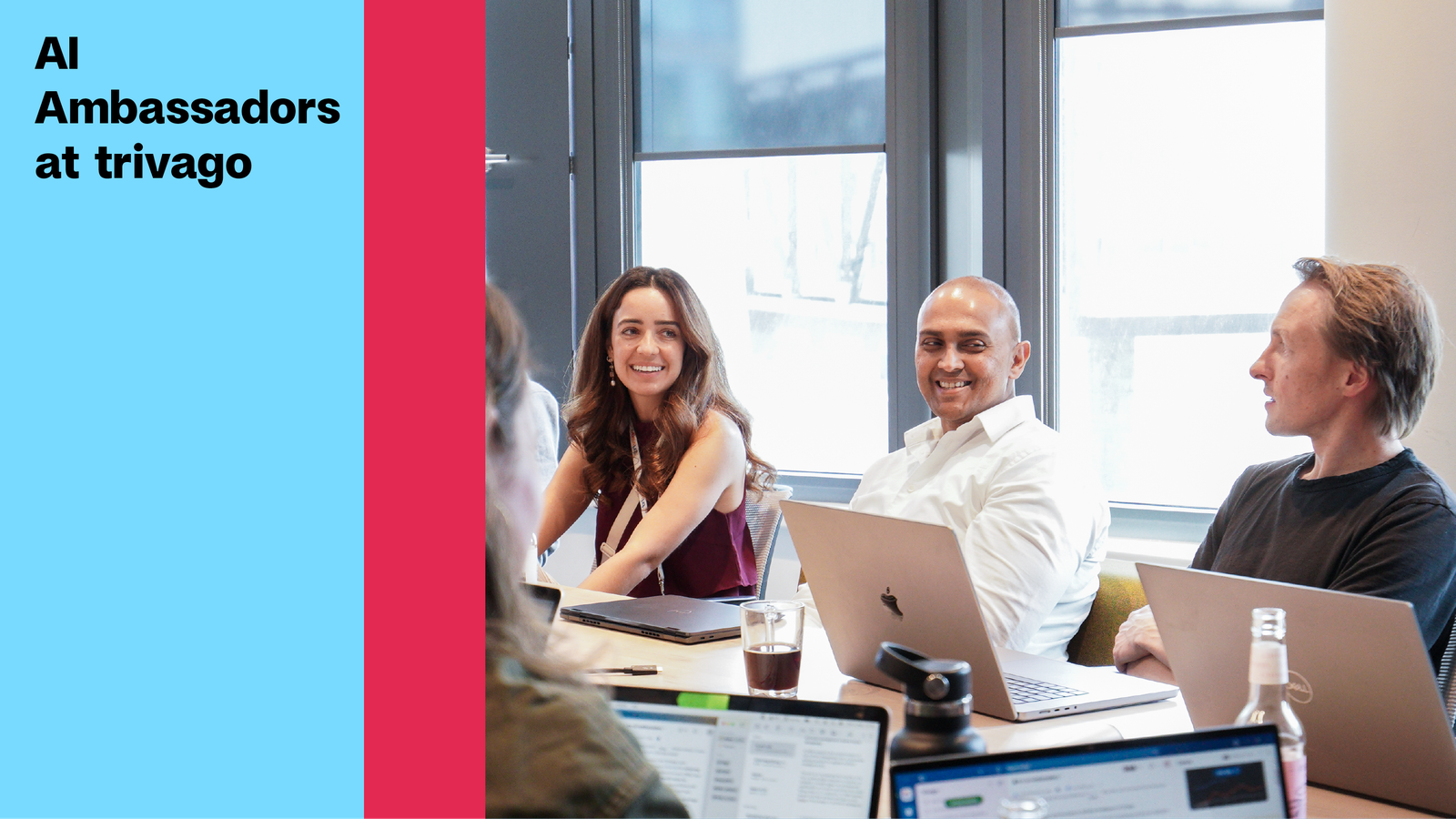Experience
Relocating with Family: Your FAQs Answered
We realize that relocating your family to a new country or even continent can be intimidating – that’s why our Employment Services team is always ready to support with advice and testimonies from our current trivago parents. Over the years a few of the same questions have kept popping up, so we’ve compiled this FAQ for all prospective trivago parents!
Does trivago offer reimbursement for relocation costs?
We’ll cover the incurred costs for your initial move from your home to your new address in Düsseldorf:
- One-way flight ticket(s) for you and your accompanying family members.
- An additional luggage item for you and your accompanying family members.
- One-way train ticket(s) for you and your accompanying family members.
- If you drive, this includes fuel reimbursement of 30ct/km for a direct route to your destination.
Other relocation costs we reimburse up to your budget, could be for instance:
- Shipping costs for furniture, clothes, etc.
- Travel costs for flat viewings (limited to the amount of two travels per person or one travel for two person).
- Real estate agent fee for rental properties.
- Transport of your pets (containers and medical costs are not included).
- Other costs e.g. tips for the movers, costs of visa fees, costs for the car registration and car license plate.
Will trivago support me for home rental, registration, and other official processes since I don’t speak German?
We know that relocating can be challenging and overwhelming. This is why we will bring you in touch with your Welcome Partner. The idea is to give you support from someone who has been through the same experience.
Most of our talents who relocated to Germany followed the same steps you have ahead of you and they all managed it without or with lesser German skills. They will share their experience and support you along the way. We as your employer can additionally support you with an employment confirmation, which is often needed to find a flat. We will also arrange an appointment at the foreigners’ office to request your long-term documents once you’re in Germany, but you’ll be attending the appointments yourself.
How does the German school system work? Should I place my kids in a private or public school? How do they differ? What if they don’t speak German?
School attendance starts from the age of 6 (grade 1). Most German children attend public schools – in comparison to some other countries, it’s not so common for German children to attend private schools. From grades 1 to 4 children attend primary school (Grundschule). From grade 5 onwards there is a variety of secondary schools (Gesamtschule, Hauptschule, Realschule and Gymnasium). The school year starts mid to end of August. You can find a more detailed overview of the German school system here.
Our advice as to where to place your child would vary depending on the city you choose to live in, their age and whether they speak German or not. However, there is a system in place in all cities to help children to integrate into the school and kindergarten system, so no need to worry! Here is some advice gathered from our trivago parents:
Kindergartens
As a city filled with expats, Düsseldorf offers a few kindergarten options for parents with kids who don’t speak German yet. One example our parents recommend is the bilingual Villa Luna, which offers various locations across Germany.
There is a standard procedure for all of Düsseldorf’s KITAs (kindergartens) that you need to go through. Everything is organised through the “KITA-Navigator” tool. Your Welcome Partner will also support you with advice based on their own experience and we have a very active internal Slack channel for trivago parents who would be happy to support you too.
trivago dad Perry Manuk shares his experience:
“I can only speak as a foreigner with two kids that were born in Germany that are currently one and three years old. Looking back at our experience thus far my first bit of advice to anyone would be to prepare ahead of time for placing your child into a kita in Germany. The school system here in my opinion is awesome, but it also seems to be stretched a bit thin and finding a place for your child is not always a given. So starting the process of looking and applying about a year before our first child started enabled us to find something that we we’re happy with in our area that also had an available slot.
The first kita my oldest attended was a mixed private/public school. This means they receive money from the state like a normal public kita, but that we paid an additional fee on top that went towards additional programs for the kids. Some examples of these were a program that had one English speaking teacher per classroom or another to provide a music teacher as well as others.
We recently moved and her new kita is a strictly public one. In comparison I would say it is the equal of the private/public one that she had attended previously in terms of her enjoyment and development there.”
Schools
In our experience, children tend to learn German quicker than adults and immersion in the German school system is a great way to speed up the learning process! How quickly your particular child will learn German will of course depend on a variety of factors, including the the age of the child and the stage they’re at in their school journey.
As Düsseldorf is a very international city, there is a great support network for non-German speakers and many German schools offer additional support for non-German speakers.
trivago mom Carrie Jäger shares her experience:
“In making our decision on the best school placement for our then 15 year old english speaking daughter, we firstly had to understand the German school system. After a lot of research and discussion with German friends we decided on the Gesamtschule.
Gesamtschulen offer a differentiated tuition structure designed to prepare students for vocational training and university studies. Students of different levels of learning ability are taught together and, unlike Hauptschule, Realschule and Gymnasium, the Gesamtschule does not allocate students to particular educational tracks. With a view to taking into account the diverse abilities and talents, classes in a number of subjects are held at two different levels (basic and extended). Gesamtschule comprises the Unterstufe (Year 5 – 10) and a subsequent Oberstufe (Year 11 – 13).
We first reached out to BAMF to understand the availability of Spezielle Förderung Deutsch als Fremdsprache courses within the city as not every school has this programme. Spezielle Förderung Deutsch als Fremdsprache is an integration class in the mainstream school system specifically for children with foreign nationality. The first months of the school year are focused on specifically learning German along with German culture and traditions. The children are integrated into the main class at a pace that suits their ability as they adjust to learning the mainstream subjects in German.
We are 3 years down the line now with a fully fluent schulkind who has adapted and adjusted to life in Germany 🙂”
International Schools
Depending on the age of your children and the stage they’re at in their studies you may also wish to consider an international school. There are a number of options for international schools in Düsseldorf and the surrounding areas:
- International School of Düsseldorf (ISD) in Kaiserswerth/Lohausen
- St.Georges (English International School) in Duisburg
- International School on the Rhine (ISR) in Neuss
- Japanese International School
- French International School
trivago employees request interest-free loans. Is there a time limit for requesting? Or this is a general benefit for employees?
We offer a newbie loan that supports you with relocating to Germany. This can be requested within the first two months of your employment. There are two possibilities: Requesting 1000 € and paying it back in 4 monthly instalments of 250 €, or requesting 2000 € and paying it back in 8 monthly instalments.
On top of this loan we will also reimburse you for your relocation costs – the amount will vary depending on where you move from and who you move with.
Does trivago provides language classes?
Yes, trivago offers internal German classes for all talents with the aim to support with the integration process into Germany. This means our course is focused on integration and not fluency. Our goal is for learners to be able to speak German in daily interactions and feel comfortable doing so.
Which financial support does the German government offer to support me and my family?
You can request “Kindergeld” (children fund) until your child’s 18th birthday if they live in your house and you provide for them. During parental leave you can also request a separate parental allowance. These benefits can be requested from the “Familienkasse” which to the German Employment Agency (Bundesagentur für Arbeit). They offer support and advice regarding a child allowance (Kindergeld) as well as supplementary child allowance (Kinderzuschlag) and other financial benefits for families. As soon as you start at trivago we will offer you guidance on how to apply for this allowance through the Familienkasse.
Does trivago support me in getting a permit for my family? How long would it take for me and my family to get a visa appointment?
Generally we provide guidance throughout the visa process in your current location (by providing an overview of steps to follow) and we also book an appointment at the local foreigner’s office once you are in Germany. However, we expect you to familiarise yourself with the process as well.
The length of the process depends on the embassy. On average (excluding during the current pandemic) it takes around 3-4 weeks to get an appointment and to produce the visa the embassy takes about another 2-3 weeks.
We will provide you with guidelines around the most important steps to follow throughout the visa process and obtaining a work permit and we will remain your point of contact along the way.
Which part of the city is family friendly?
Check out our neighbourhoods guide to Düsseldorf for an overview of the city’s most central neighbourhoods. If you prefer to live further from the city centre, our trivago parents recommend looking in the following neighbourhoods that are generally popular among the English-speaking expat community: Lohausen, Kaiserswerth, Witlaer, and Angermund.
Have any more questions about relocating to and living in Germany? Check out the articles below or feel free to reach out to us on Facebook, Twitter or Instagram – we’re here to help!
15 Reasons to Move to Düsseldorf | The Ultimate trivago Relocation Guide | Destination Düsseldorf: What you need to know if you’re moving to the Rhine Capital!



